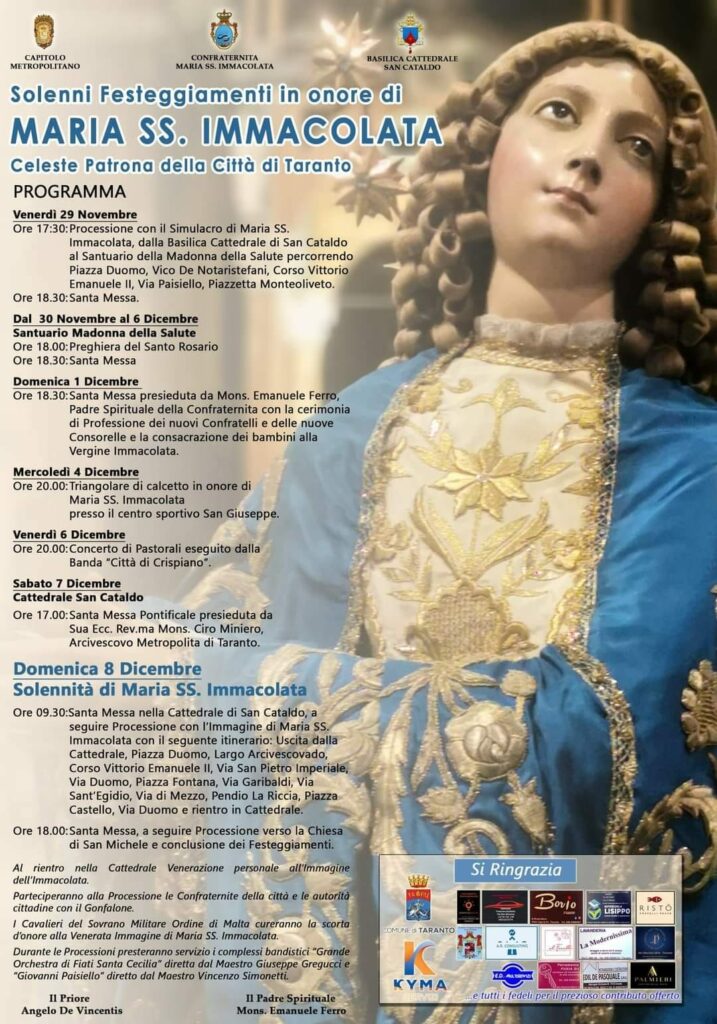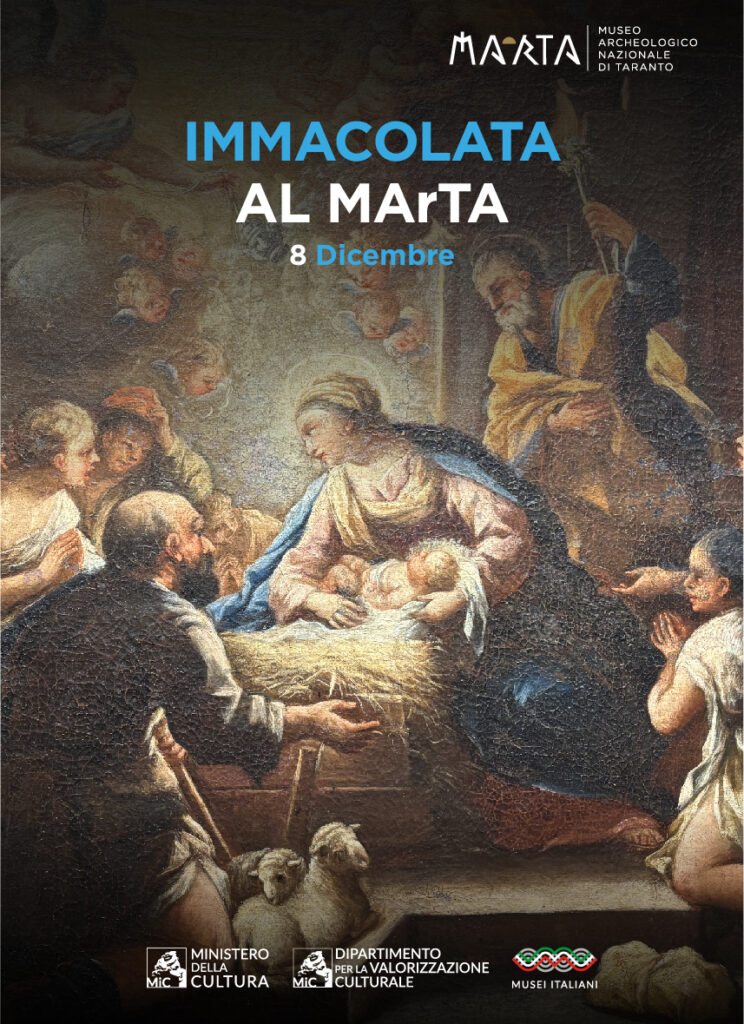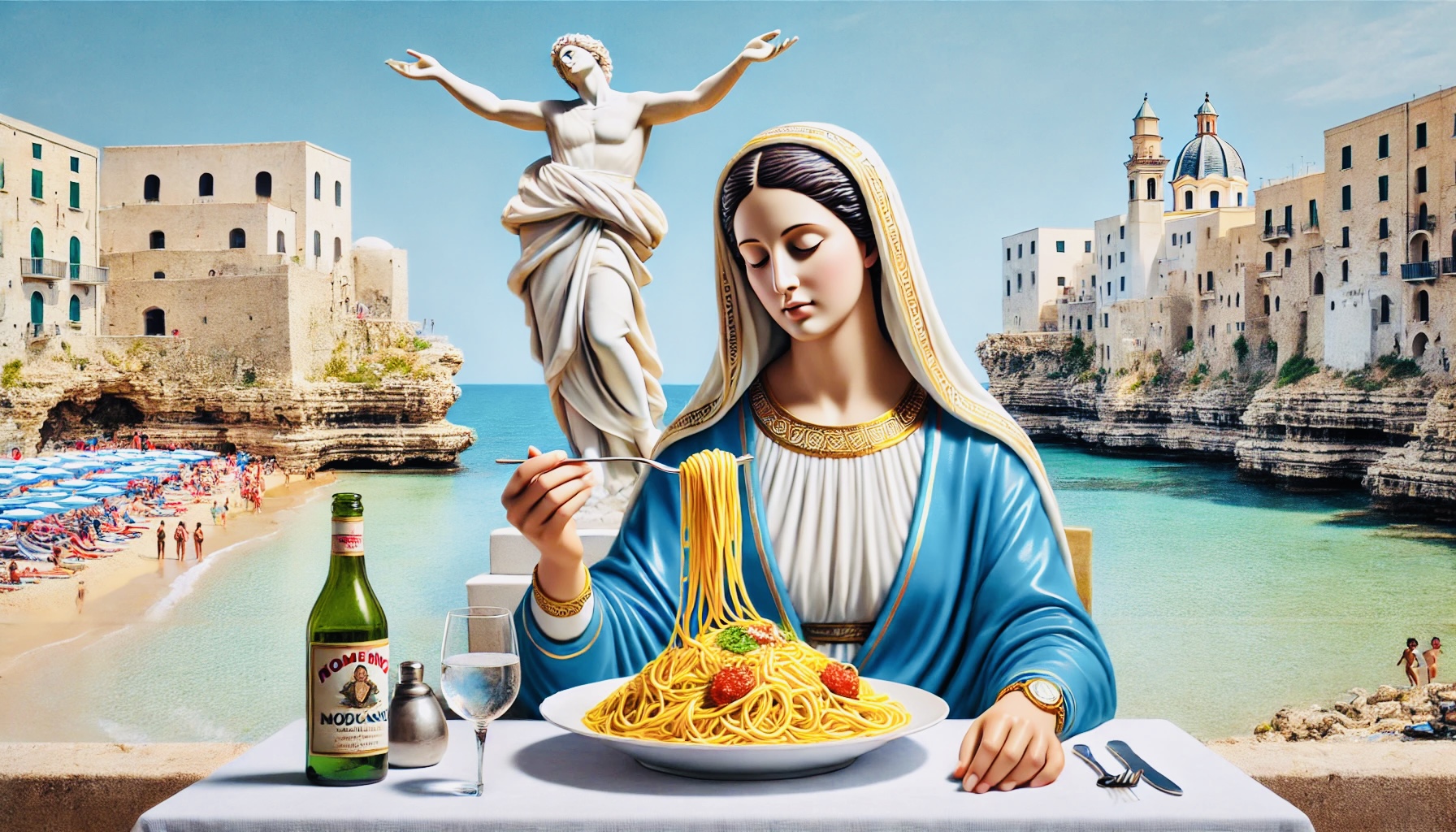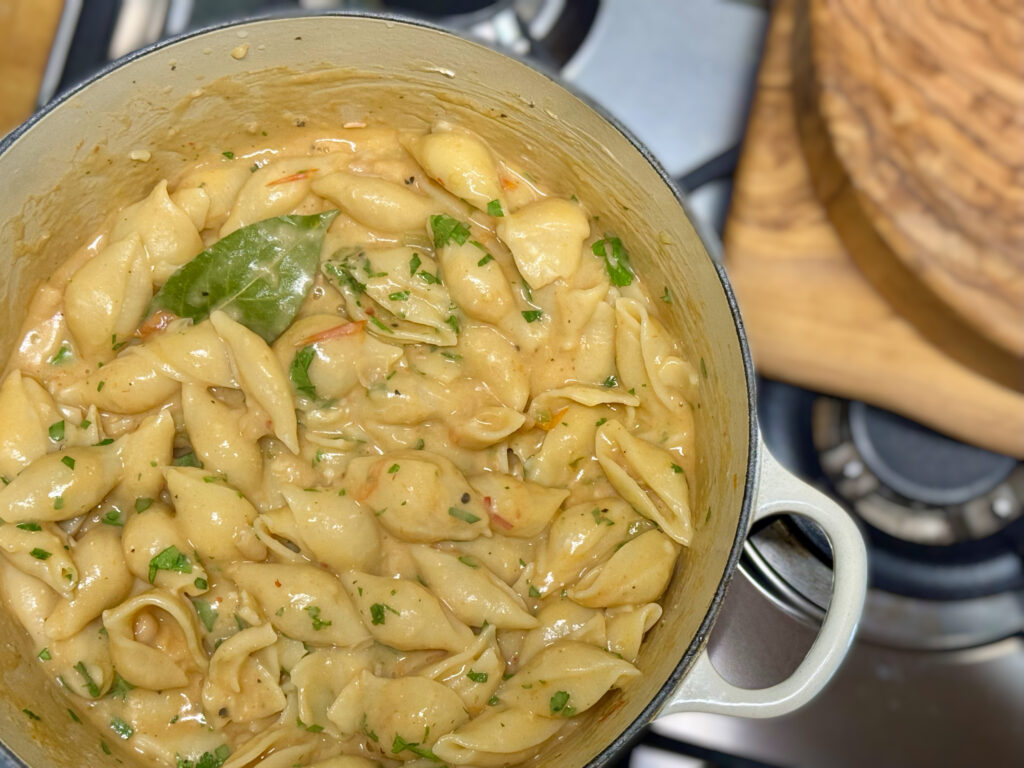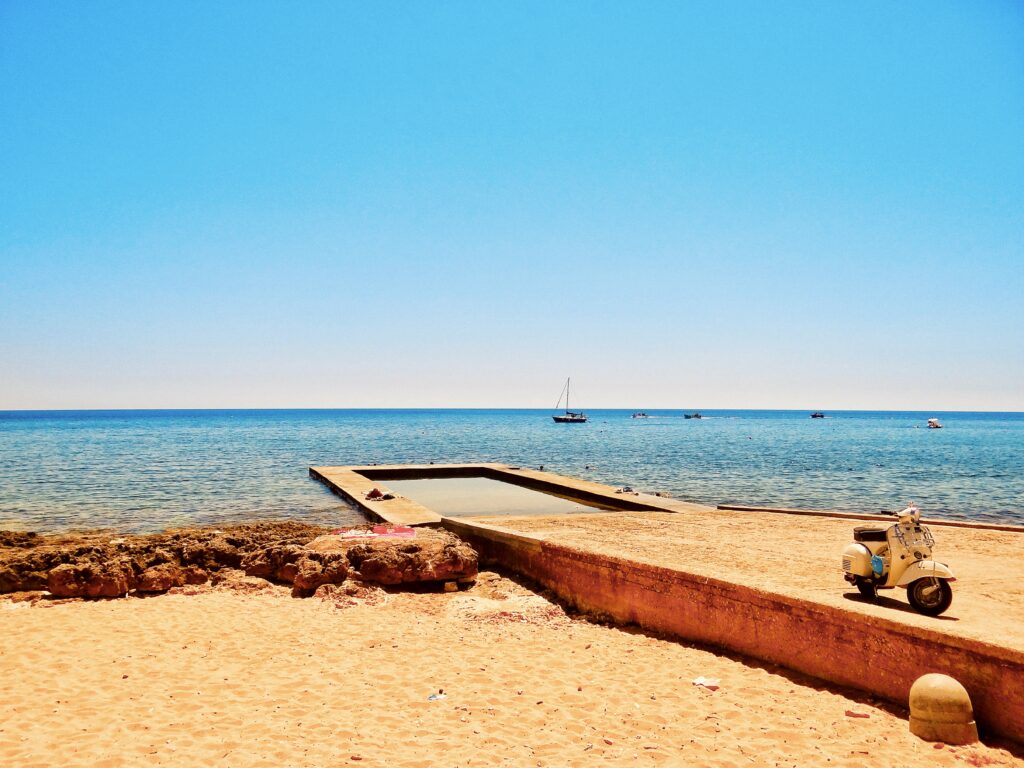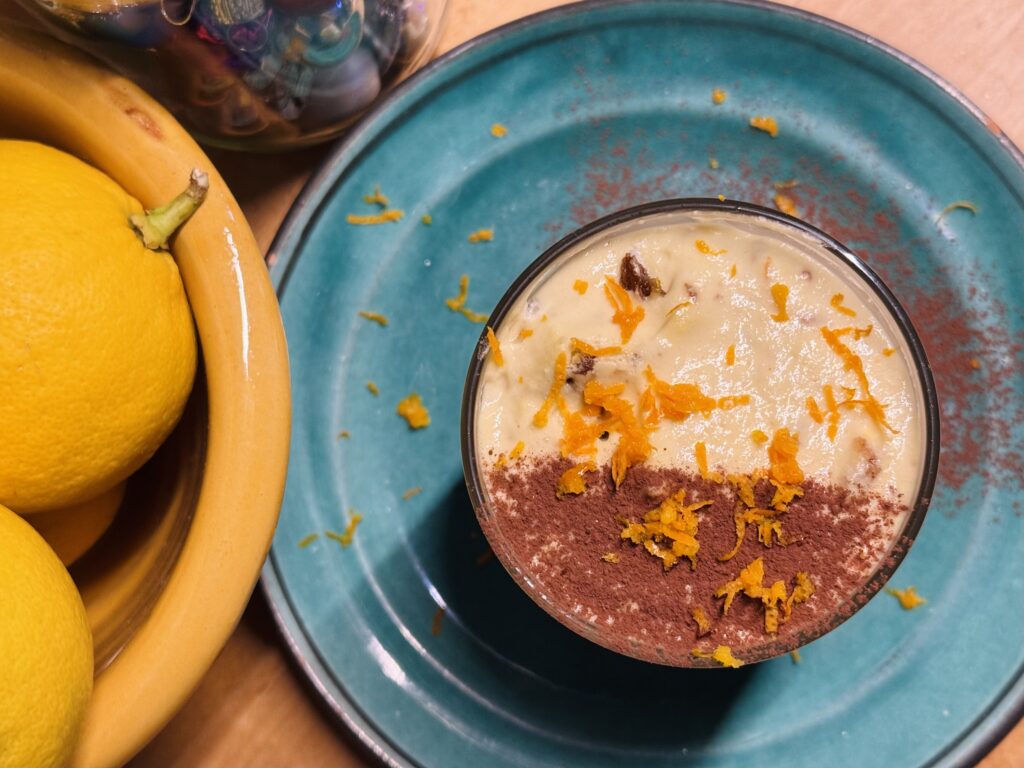The Feast of the Immaculate Conception: An Italian Celebration of Faith, Family, and Food
In Italy, the Christmas season begins in earnest with the Feast of the Immaculate Conception on 8 December, a national holiday that blends solemn religious observance with vibrant culinary traditions. Many think that today celebrates the conception of the baby Jesus. But it actually honours the immaculate conception of the Virgin Mary free from original sin, proclaimed in 1854 by Pope Pius IX. For many Italians the occasion is still a spiritual milestone. It also marks the start of the festive season ahead.
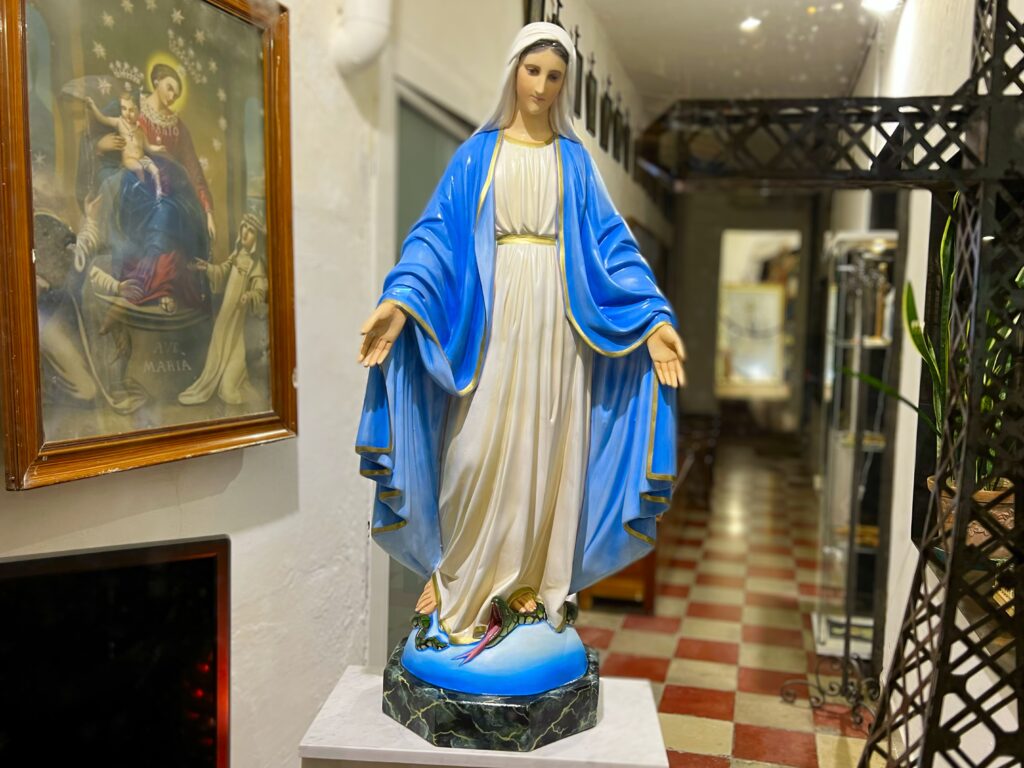
Religious Significance: A Day of Purity and Grace
Rooted deeply in Catholicism, the Feast of the Immaculate Conception commemorates Mary’s divine purity, a key belief that underscores her role as the Mother of Jesus Christ. The choice of 8 December aligns with the liturgical calendar, marking nine months before her celebrated birth on 8 September. Churches across Italy host special Masses, and processions honour the Virgin Mary with prayer and song, reminding the faithful of her unique grace and role in salvation history.
The feast has parallels in early Eastern European Christianity, though the traditions diverge in both timing and theology. In the East, 9 December marked the Feast of Saint Anna, celebrating the conception of the Virgin Mary. According to early narratives, Anna, Mary’s mother, was thought to have conceived her child in a miraculous manner—despite being unable to conceive and with her husband, Joachim, away in the desert praying at the time. This story bore its own version of the idea of a conception “without sin or sexual union,” aligning in spirit, though not in doctrine, with the Western idea of the Immaculate Conception.
Today Festa dell’Immacolata has also evolved into a cherished cultural event, becoming an occasion for Italians to reconnect with family, decorate Christmas trees, and inaugurate the holiday season’s festive meals.
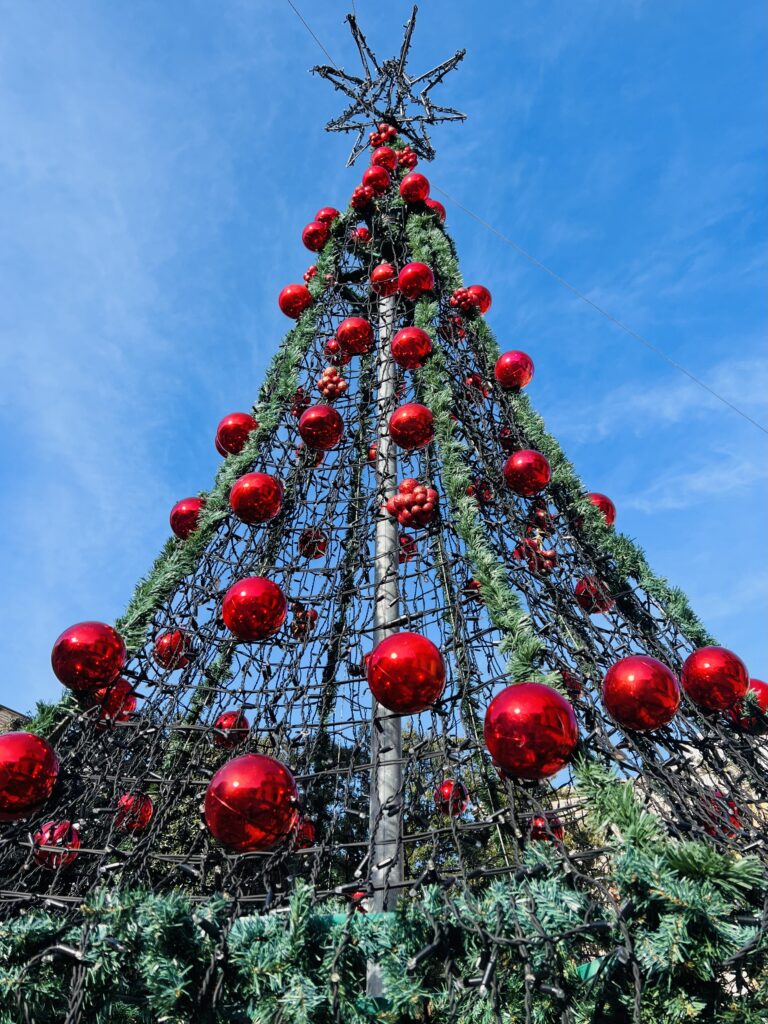
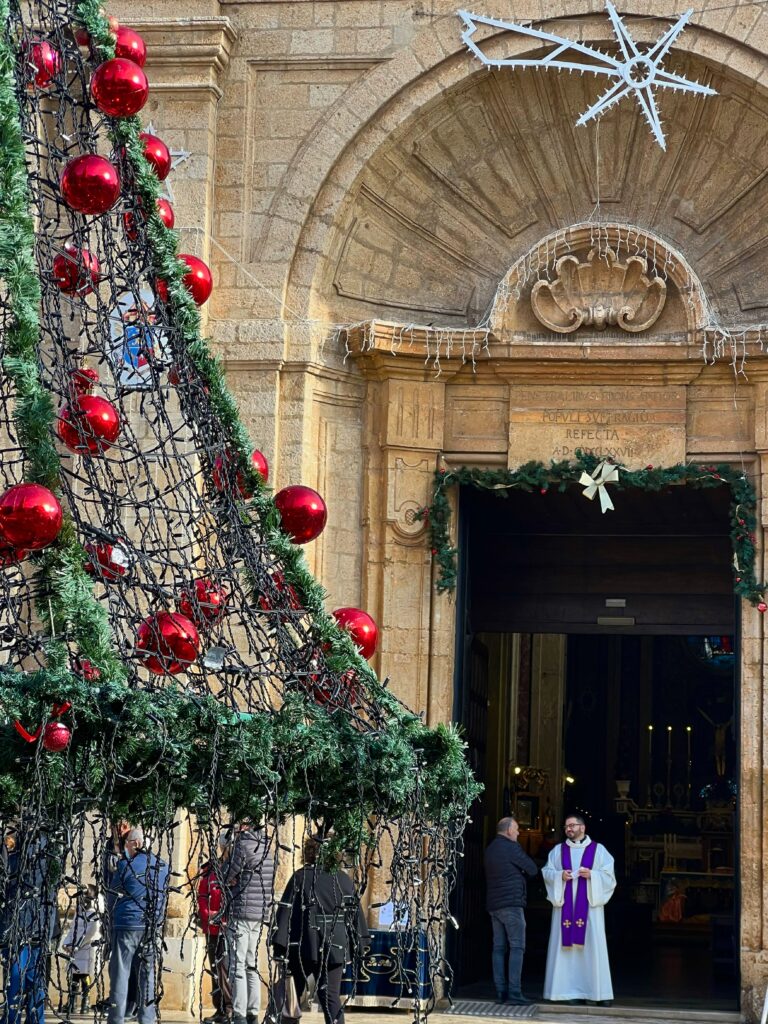
Culinary Traditions Across Italy
The clue is in the name! As always on the occasion of religious celebrations food plays a central role, as families gather around tables. Although the Immacolata menu varies by region, one unifying theme is the sense of abundance, marking the beginning of holiday indulgence.
Puglia: Fire and Flavour
In Puglia, the feast is celebrated with bonfires. Known locally as fanova or u fame, these fires symbolise purification, the burning away of sin, and the warmth of family unity.
Local celebrations include the ‘Fiaccolata del Immacolata’, a torch lit procession of the statue of the Madonna with blessings, prayers and songs.
Against the backdrop of these roaring flames, the culinary offerings are equally vibrant.
- Pettole: Fried dough balls, either plain or stuffed with fillings such as ricotta, tuna, or tomatoes. These golden treats are paired with local vin cotto, a syrupy wine reduction made from grapes or figs.
- Puccia: A small bread roll filled with breadcrumbs, tuna, and cheese, reflecting Puglia’s rustic culinary traditions.
- Baccalà in pignata con patate: Cod stewed with potatoes in a clay pot, a comforting and flavourful dish that harks back to simpler times.
- Grano cotto nel sugo: A dish of cooked wheat in tomato sauce, embodying Puglia’s agrarian roots.
Basilicata: Sacred Bread
In Matera, Basilicata, the feast begins with the traditional Tarallo dell’Immacolata, a biscuit-like bread flavoured with fennel seeds. Children and elders often dip these taralli in red wine as part of the celebration. Later, meals feature spaghetti aglio, olio e peperoncino (spaghetti with garlic, oil, and chilli) and fried cod, bridging simplicity with indulgence.
The Feast as a Culinary Prelude to Christmas
Though rooted in religious devotion, the Feast of the Immaculate Conception has evolved into a celebration of togetherness, where food becomes a symbol of gratitude and joy.
For travellers, experiencing this feast day in Italy offers a profound glimpse into the nation’s soul—its faith, its familial warmth, and its love of good food. The start of the most wonderful time of the year (if you don’t count the Feast of San Nicola, Bari’s patron saint which we celebrated on 6 December)!
